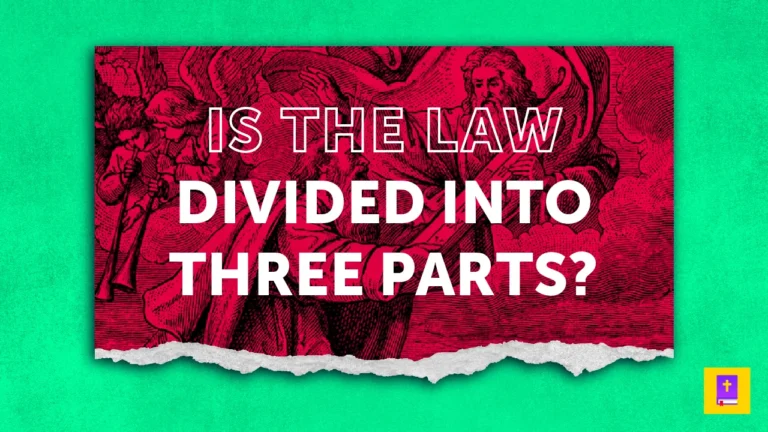The SDA Church holds to the position that there are two types of election. They claim the Bible teaches that God chooses every single one of us for salvation and wants us to be transformed into the image of Jesus. The second kind being that God chooses different people for specific tasks. They try and cite some of the strongest election passages in scripture such as Romans 8:28-9 and Romans 9 to support this.
Their scholars have long tried to claim they hold to an inherited view from John Wesley, but really it comes from their need to make election fit with their novel investigative judgment doctrine. If God’s election is a personal act, the investigative judgement collapses. So they claim that God calls for an initial acceptance and on-going participation and that this on-going participation legitimizes the election of an individual leading them to “final salvation”—which sounds oddly similar to the Medieval Roman Catholic view of salvation.
This isn’t what the Bible is teaching regarding this subject. When God elects, He does so freely and it results in the thing happening. By the Adventist Church claiming that God elects every person to salvation because he wants them to be saved, they completely miss the root of election—which is that when God elects, it happens. When it comes to salvation, election is personal, not general. It involves God electing specific individuals, as we will see, because it is tied to the entire chain of salvation which involves being predestined, called, chosen, elected, justified, sanctified, and glorified (Romans 8:28-30). If God chose (elected) every single person, they would be saved because election is a part of the entire chain, not a general choice of God wanting all people saved. They have to have it this way, ultimately, because of their teaching on the investigative judgment. If election is personal, the investigative judgement collapses and so goes Adventism.
The Adventist Church has long painted this with the “Calvinistic” and “Augustinian” boogeymen brushes, even making such wild claims that the investigative judgment is only in conflict with Calvinism (as if other orthodox systems of theology jive with their novel teaching). But what matters is—what does the Bible say?
The SDA Church is correct insomuch as election is a salvific term—something that is under the category of salvation. But more broadly, election refers to God’s action of choosing to do everything that He does in whatever way He sees fit. When He acts, He does so because He willfully and independently chooses to do so. According to His own nature, predetermined plan, and good pleasure, He decides to do whatever He desires. This is without any sort of outside or external influence to himself.
We see this throughout the entirety of scripture. In the Creation of the world, God created what He wanted, the way he wanted it (Genesis 1:31). Since then, as the Sovereign over the universe, He has prescribed or permitted everything in human history, with the purpose of accomplishing the redemptive plan that He enacted (Isaiah 25:1; 46:10; 55:11; Romans 9:17; Ephesians 3:8–11). This plan was not an afterthought, a plan b, or a reaction to unforeseen circumstances and outcomes.
In the Old Testament, out of all the nations, God chose to be the God of Israel (Deuteronomy 7:6; 14:2; Psalm 105:43; 135:4). This choice was made, not because of anything in them or because they were more desirable than any of the others, but simply based on His free choice and pleasure. It was also a personal choosing of a particular people, not a generic choice on God’s part.
We get a deeper look into election in the New Testament where Jesus is called the LORD’s “Chosen One” (Luke 9:35), there are elect angels (1 Timothy 5:21), and Christians are called “God’s chosen ones” (Colossians 3:12; 1 Corinthians 1:27; 2 Thessalonians 2:13; 2 Timothy 2:10; Titus 1:1; 1 Peter 1:1; 2:9; 5:13; Revelation 17:14). The church—the universal body of believers—is a community of those who were chosen, the elect (Ephesians 1:4). Again, showcasing the personal aspect of God’s choosing of specific individuals, not general categories.
Jesus told His disciples that He chose them (specific individuals), not the other way around (John 15:16). Acts 13:48 says God appointed believers to eternal life (personal people). Ephesians 1:4–6 says that God predestined and chose believers in Christ before the foundation of the world. We know this is referring to personal individuals and not generally to every human being because Paul is writing to the church, to believers, and is using personal pronouns. He isn’t referring generically to the entire world being elected but then the believers there in Ephesus, because of their choices, made it into this elected group. They are in that group because God personally chose them.
In his letters to the Thessalonians, Paul tells them (believers) God chose them specifically (1 Thessalonians 1:4). They were a part of the first fruits that God chose to be saved in the New Testament church (2 Thessalonians 2:13). Again, this is written to believers, not generally to and about the whole world, showing that God’s choosing is personal when it comes to salvation, not general. Believers are those whom God chose for salvation from before the beginning. It is a personal act on God’s part regarding specific people.
Some SDAs have tried to assert the view that in eternity past, God looked down the corridors of time to see who would respond to His call and then elected those he foresaw would make a decision for Him. The problem is what determined what God foresaw by looking down the halls of time? There’s something outside of God that He is then beholden to regarding what He does and does not accomplish. What outside of God is determining what He foresees?
This explanation also makes God’s decision subject to man’s decision, and gives man a level of sovereignty that belongs only to God. It makes God the One who is passively chosen rather than the One actively choosing—completely reversing what the Bible presents. They usually use 1 Peter 1:20 to try and support this. This is a misunderstanding of the way Peter uses the term foreknowledge, though. His use of the verb form of that word prognosis, to refer to Christ, means that God’s foreknowledge includes a deliberate choice on His part. The same is true when Peter applies prognosis to believers in other places (1 Peter 1:2). It isn’t something external to Himself that He is beholden to by looking into the future.
The SDA Church knows Romans 9 is a major problem for their teaching so they have tried appeal to the common idea that God is referring to the election of general people groups (Israel and the rest of the world) that would come through the lineage of Jacob and Esau, not individuals for salvation. But this is insufficient to deal with the whole of the text.
God’s electing prerogative is clearly displayed in reference to His saving love for Jacob and his descendants as opposed to Esau and his descendants. Paul uses individuals as the example of election, not people groups that would come through the individuals genealogically. God chose Jacob over Esau (personal individuals), not on the basis of anything Jacob or Esau had done, but according to His own freedom and purposes. Paul, anticipating the response of, “That’s not fair,” asks the rhetorical question of, “Who are you, O man, to answer back to God?” (Romans 9:20). What should shock us is not “Esau I hated,” but “Jacob I loved.” We should be in awe that God even saves anyone when all of humanity is rightfully owed condemnation.
It is on this basis that salvation can truly be all of Christ and not by any work of man. The only thing that separates the believer from the unbeliever is the grace of God. Believers are not smarter than their neighbor who never comes to Christ, not more spiritual, or better decision makers. The only thing separating them is the grace of God.
Many do not like this teaching and, in the SDA Church’s case, want to saddle it with being the boogeyman of “calvinism” (they loathe Reformed theology). But instead of dismissing this idea by associating it with a group they don’t like, what matters is what does the Bible teach?
Election is a personal action of God, not a generic one. When it comes to salvation, God did not elect every single human being generally which doesn’t actually result in salvation for all of those elected, the ball being in man’s court. God, so rich in mercy and grace, personally chooses people as His own from the heap of rebel sinners who deserve condemnation and extends effectual grace to them. This grace regenerates them, not based on anything in themselves, but solely on the basis of His good pleasure. He clothes them in Christ’s righteousness (2 Corinthians 5:21; Philippians 3:9-10), forgives them all of their sins (Hebrews 8:12), makes them a new creature in Christ (2 Corinthians 5:17), and adopts them into His royal family (Galatians 3:26-28)—all of which takes pace by being “in Christ.”
This is not only immensely comforting to the believer, but absolutely God glorifying.










